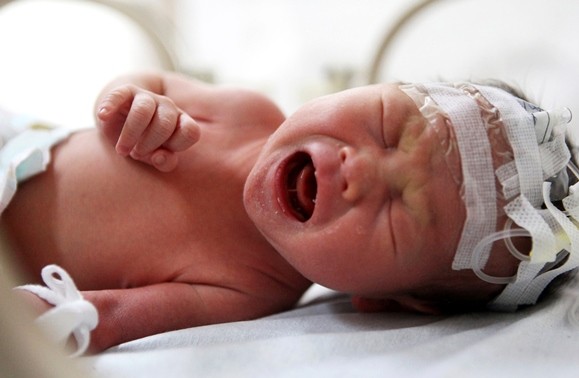A lot of baby havens, or safe havens, are alarmingly continuing to either halt their operations or forced to close down after China's first baby hatch ceased to receive more abandoned babies February the previous year, which induced concerns over the increasing number of abandoned children
The continuous stopping of the operations of baby hatches suggests the incapacity in dealing with the large number of incoming babies.
Before the establishment of such facilities, many abandoned babies were left to die on roadsides or in the wilderness.
The baby hatch, or "safe island" for babies, is where abandoned children are placed.
The first baby hatch to cease its functions was the one in Guangzhou, Guangdong Province, after it reportedly received 262 infants in just 50 days in March 2014.
According to a Xinhua News Agency report, several baby hatches closed down or stated their reluctance in receiving more babies.
The logo of a baby hatch in Ji'nan, Shandong Province, was removed by an employee stating that "they do not want the hatch to become a public focus." The baby hatch sheltered 106 abandoned infants in the short span of 11 days since its opening on June 1, 2014, according to Qilu Evening News.
Also, baby hatches in Xiamen, Fujian Province, closed recently, as reported by js.chinanews.com.
Other baby hatch establishments are battling to keep up.
Workers on a baby hatch in Nanjing, Jiangsu Province, were convincing parents to not desert their children, after they have received twice the number of babies in 2014 compared to 2013.
"The numbers of abandoned babies will not change because of the existence or closure of baby hatches. But the closure of the hatches means that more babies will die," said the founder of the Home of Little Hope, Chen Lan. The foundation is a Shanghai-based non-profit child abuse prevention organization, according to the Global Times.
Almost all of the deserted infants were victims to congenital diseases, as reported by a baby hatch in Nanjing. The parents of the children left the medical expenses and efforts to welfare centers, mentioned Zhu Hung, the president of the welfare center in Nanjing.
Reports from media outlets presented that there are only 40 beds in the quarantine room in a baby hatch in Nanjing. Due to the shortage of beds, sometimes two sick babies share a bed and those recovering are forced to make way for the gravely ill.
The deficiency in professional skills and workers is a very serious problem, according to Tong Xiaojun, the vice director of the China Social Work Research Center at the China Youth University for Political Sciences in Beijing.
Baby hatches were first introduced in Shijiazhuang, Hebei Province, in 2011. To date, 32 baby hatching establishments have been and received 1,000 babies since 2013.



























